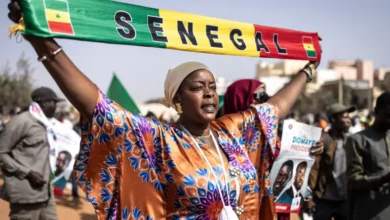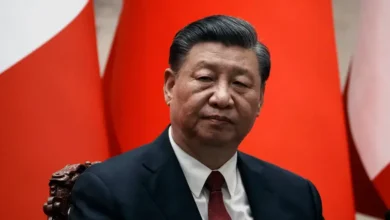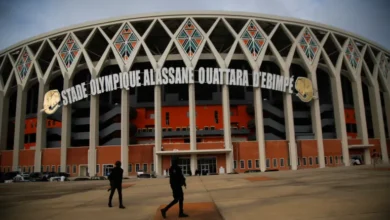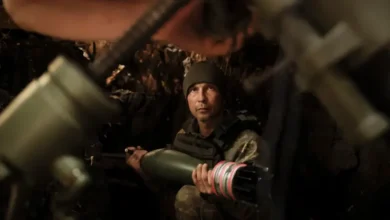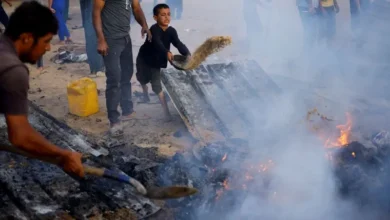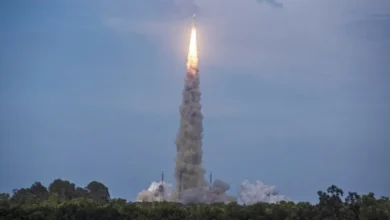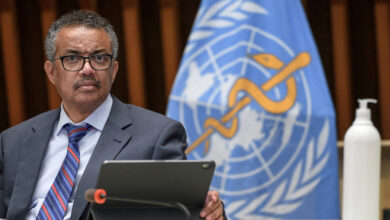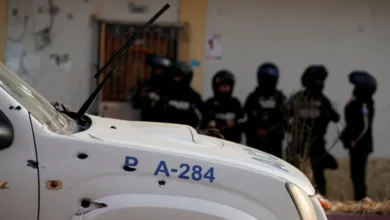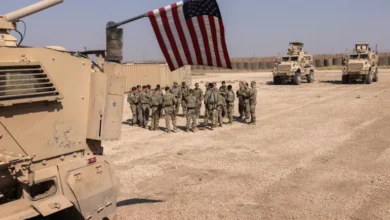As Sudan war rages, rival sides accused of looting, diverting aid
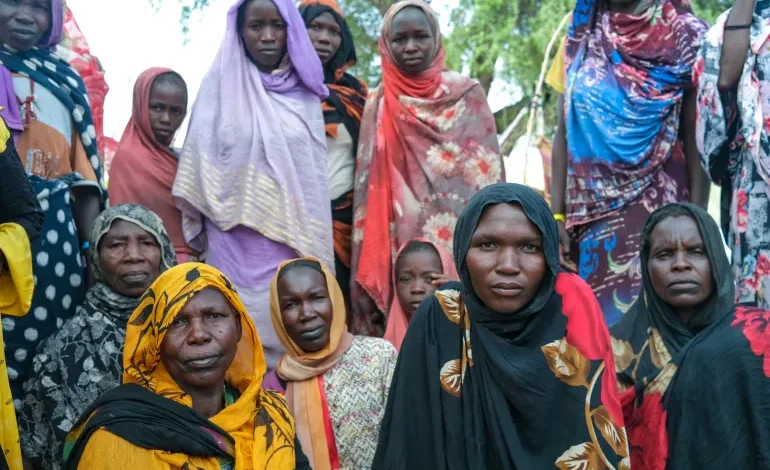
On May 22, security officers abruptly showed up at a Doctors Without Borders (Medecins Sans Frontieres, or MSF) warehouse in Gedaref, a city under army control in eastern Sudan.
The officers said they needed to check the medical aid, which was supposed to be distributed to civilians caught up in a vicious war between the army and paramilitary Rapid Support Forces (RSF). Then, they confiscated the supplies without further explanation.“We had a shipment ready to go from Gedaref … to a hospital in North Khartoum but it was all taken,” said Jean-Nicolas Armstrong Dangelser, MSF’s emergency coordinator in Sudan.
An estimated 25 million people – more than half of Sudan’s population – are in desperate need of aid due to an acute humanitarian crisis made worse by the fighting. But as the conflict enters its third month, both sides are accused of attempting to exploit aid deliveries to gain an upper hand on the battlefield.
The RSF and army are both stealing aid, restricting aid access and imposing rent-seeking impediments, according to 12 aid workers, Sudanese medics and experts who spoke to Al Jazeera.
“The army is not allowing many supplies into [RSF-]controlled areas and the opposite is also true. We are suffering because there is a conflict between the two,” said Yousif Ahmed, a medic whose name has been changed to protect him from reprisals.
“Both [RSF and the army] are stealing medical supplies and this is why we have shortages everywhere.”
Al Jazeera contacted army spokesperson Nabil Abdullah and RSF spokesperson Youssef Ezzat for comment, but neither had responded by the time of publication.Keeping quiet
MSF’s supplies were confiscated by the Humanitarian Aid Commission (HAC), which was given expanded powers to crack down on aid groups by Sudan’s former authoritarian leader, Omar al-Bashir, in 2006. Today, they operate under the army’s de facto command.
The HAC seemed to be designed to treat Western aid organisations with suspicion, with the government in 2009 going so far as to expel 13 aid agencies for “threatening the security of Sudan”. But rights groups and aid workers said the real reason was al-Bashir’s perception that they had helped the International Criminal Court gather evidence that resulted in a warrant being issued against him for crimes against humanity.Aid workers told Al Jazeera that they consider the HAC an outfit for military intelligence and that the commission continues to be a thorn in the side of major aid groups and the United Nations today.
The HAC remains tasked with granting visas to aid workers and issuing travel permits to those requesting to move within Sudan. It also monitors the delivery of aid and inspects all aid supplies that arrive at Port Sudan – a city under army control where most aid enters the country and which has acted as the administrative capital since the war erupted in mid-April.For that reason, most aid workers spoke to Al Jazeera off the record for fear of losing the limited aid access they have been granted.
“We don’t see [HAC] as an impartial actor,” one country director for an international aid agency told Al Jazeera.The same source said the HAC epitomises the de facto military authority’s suspicion towards international relief organisations. Three relief workers also said aid agencies are not as vocal about the army’s role in aid diversion out of fear of losing the already limited access they have in Sudan.
“There is a sense of treading softly so that you don’t step on the toes of people that you might need for visa renewals or permits or for whatever else is needed in order to deliver aid in Sudan,” one aid worker told Al Jazeera.
The head of the HAC, Najm al-din Musa, denied allegations that the commission was involved in aid diversion.
“These allegations you are hearing are wrong … and they are just lies. I will tell you the truth. The commission doesn’t take any aid from any organisation,” he said.Stealing medical supplies
Since the war, at least 61 offices and 57 warehouses belonging to aid groups have been looted, according to the UN Office for the Coordination of Humanitarian Affairs (OCHA). Aid workers said they suspect the RSF was responsible for most incidents.
MSF’s Armstrong Dangelser said that one of their warehouses in Khartoum was looted many times.“They took many of our logistic items and medical supplies. Sometimes there were a few days of calm, and then they visited our warehouse again,” he told Al Jazeera.
“Confiscations of aid are happening on both sides,” he said.
Local medics also said the army stopped an MSF convoy in mid-May, which agency employees confirmed, and diverted the medical supplies to a military hospital in Khartoum.
Another doctor, Alaa Nugud, appeared on the Arabic news broadcaster al-Hadath on May 26 and accused the army of confiscating half the medical supplies that the World Health Organization (WHO) had brought to Port Sudan.
He also said the army took the supplies to their military hospital in Khartoum.
Two days after his interview, the military arrested Nugud at his home. Al Jazeera spoke to him after he was released on June 8, but he declined to speak about why he was detained and whether he was mistreated.
Al Jazeera reached out to the WHO for comment regarding the doctor’s allegations, but the agency did not respond.Monitoring and transparency
OCHA told Al Jazeera it has created “a humanitarian information-sharing mechanism” to facilitate aid shipments. The mechanism is voluntary and designed for aid agencies to notify the belligerents of their shipment through an online form.
Guiomar Pau Sole, the OCHA spokesperson, acknowledged that the UN has received dozens of reports related to violence and intimidation against aid workers, as well as the confiscation and looting of relief supplies. But, she added, none of the 274 relief trucks that have gone through OCHA’s humanitarian-sharing mechanism have been confiscated.
Despite the claim, aid workers told Al Jazeera that most relief agencies do not use the UN’s system because they fear it creates a precedent for Sudanese authorities to demand more information about aid shipments than they previously did.

